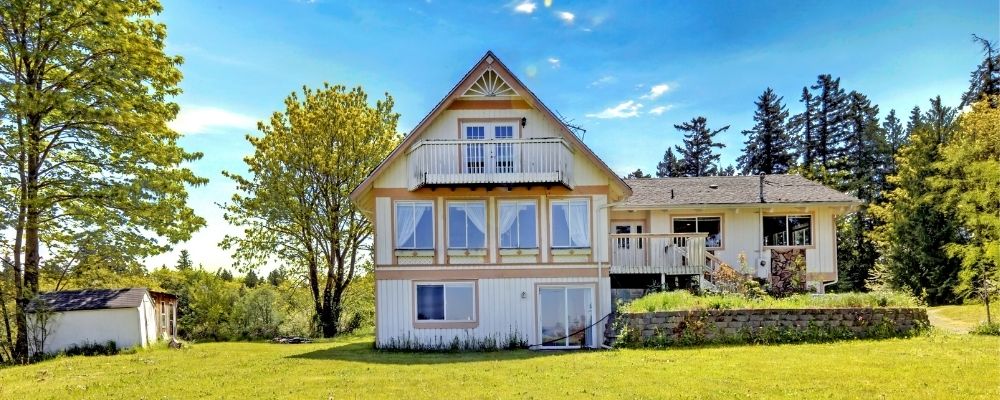Selling your house can be one of the most stressful things you do in your lifetime. After the lockdown ended, houses seemed to fly off the market because the demand for them far exceeded the inventory.
But there are always those houses that just sit – no one wants them. It’s usually due to serious circumstances that make the home unsellable, but sometimes it’s just poor timing or bad luck.
Fortunately, even if you are stuck with a house that won’t sell, there are a few things you can do to get rid of it. It does require some creative thinking, but if it gets your house sold, it’s definitely worth a shot.
Table of Contents
What Causes a House not to Sell?
First, let’s look at what causes a house not to sell, especially in a seller’s market. You’d think every house that hits the market would sell, but there are certain reasons some don’t.
THE PRICE IS TOO HIGH: It’s easy to get caught up in the emotion of the memories made in your home, making you inflate the price. If you don’t work with a licensed real estate agent or appraiser, you may just take your best guess and hope you get the price you want.
That’s not how it works, though. In most cases, a potential buyer will only pay market value since that’s all their bank will allow if they need financing. If your price is well above what comparable homes in the area sell for, you won’t have luck selling it.
THE HOUSE HAS NO CURB APPEAL: Your home’s first impression sets the tone for buyers. If the outside of the home looks unkempt, most people assume the inside is too. If you want to make a good impression, cut the lawn, trim the bushes, and take care of the home’s siding, roof, and decking. Make the home look well-cared for, not well-lived in, and not taken care of or you’ll send buyers running.
THE HOUSE IS IN SHAMBLES: An unmaintained house won’t sell. Even if you found a willing buyer, if there are many issues with the home, it won’t pass the lender’s appraisal which means no financing. A maintained home sells much faster (and for more money) than an unmaintained home.
THE HOUSE ISN’T WELL SUITED TO POTENTIAL BUYERS: If you’ve renovated the home, giving certain areas ‘custom features’ it might not resonate with the target market that is looking to purchase a home like yours. What you may have thought was a good idea or good use for the area could be totally impractical for most people. For example, if you transformed the garage into a gym rather than a place to park your car – chances are it won’t be a big hit with buyers. This could be a big turn off for many potential buyers.
IT SMELLS BAD: It sounds funny, but your home may have a smell that you don’t even realize. If you don’t deep clean the home, especially if you have pets, smoked, or cooked aromatic foods often, it could make your home unsellable. People who haven’t been in your home will immediately pick up on the smell and it could turn them off.
WATER DAMAGE: Plumbing problems are not only an eyesore from the leaking water and cosmetic damages but also a mechanical issue. Most people won’t buy a home that has water issues because it leads to mold and mildew which is costly and detrimental to the home’s structure.
7 Ways to Sell a House that has been Sitting on the Market

If you’ve wondered how to get rid of a house that won’t sell, here are the top six ways.
1 – LOWER THE SALES PRICE: This may not be what you want to hear, but if your home is unsellable, you’ll be stuck with it for an unknown amount of time if you don’t do something. Lowering the sales price is often the easiest way to gain the attention of a potential buyer.
Some buyers may sense that something is wrong with the home and refuse to see it. However, an experienced real estate investor will see it as a bargain, especially if they have a good sense of comparable homes in the area. In essence, lowering the price benefits a prospective buyer in a number of ways. For instance, it will automatically lower the future mortgage payment. In addition, if the investor is hoping to flip the house, they will be able to generate more profit in the deal.
2 – OFFER A RENT TO OWN OPTION: If you can’t get buyers into the home, consider leasing it with the option to own it down the road. This may open up more doors, but you will have to put some money into the home if anything is wrong with it.
You can’t rent an unlivable home to tenants, but you can rent a decent home and together with your lawyer work out a rent-to-own agreement.
3 – INCREASE ESTATE AGENT COMMISSIONS: If you choose to use a an estate agent to sell your house, increasing the commission on offer is an excellent way to fully leverage their skills and resources. By increasing commission, you realtor has more skin in the game, which could help motivate them to improve the real estate listing on popular websites, set up another open house, or simply advise on how to make the house more appealing to the housing market.
4 – FIX THE HOME PROPERLY: If you get the same complaints from multiple buyers or you find out from an inspector or appraiser there are things wrong with the house, consider fixing them. No one wants to invest too much money in an asset they are selling, but if it means the difference between selling and not selling your house – chances are you’d choose to invest in it so you could sell it.
5 – SELL TO A CASH BUYER: Cash buyers have a lot more leeway because they aren’t restricted by a lender. They can buy a home that’s in complete shambles if they wanted to, but they’ll negotiate the price pretty low to do so.
The bottom line, is though, cash buyers offer more leniency and can buy your home as-is without requiring you to invest any more money into it. You simply need to be open to a cash offer, knowing that you will probably have to sell the house below market value in order to make the deal work.
6 – CONSIDER A SHORT SALE: It’s not the best option, but if you owe more than you can get for your home, your lender may work out a short sale agreement with you. A short sale agreement means the lender will accept an offer that’s less than what you owe on the mortgage.
There are consequences to a short sale, including damage to your credit score, so discuss your options with your financial advisor and/or real estate lawyer first.
7 – USE A RELOCATION PROGRAM: If you are moving because your employer transferred you, they may have an employee relocation program. Also known as a Guaranteed Buyout Program, you’re guaranteed to sell your house. The relocation company buying your house guarantees you the average value based on two independent appraisals.
Alternatives to Selling your House
If you really can’t sell your house, there are a few alternatives you may consider:
- Putting the house up for rent
- Wait for the housing market to improve
- Wait until you fix up the home
- Foreclosure (should be your last option)
Final Thoughts
When considering how to get rid of a house that won’t sell, it can feel overwhelming at times. It may feel like you’ll never be able to sell it, but with the right steps, there are ways. Most options take time – especially if you have to fix the home up again, but the investment (in both time and money) is well worth it if enables you to sell your home.



